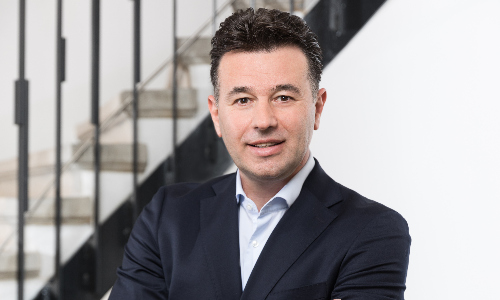Miró Mitev: «In AI Investing, Time is the Secret Ingredient»
«AI delivers attractive returns at significantly lower costs,» says Miró Mitev. «Because we no longer need a large investment team, our management fees are lower. At the same time, our AI has consistently outperformed the best ‹human managers› year after year for more than two decades,» emphasizes the founder and CEO of Smarth Wealth Asset Management in an exclusive interview with finews.asia.
Miró Mitev, what is Smart Wealth Asset Management doing to ensure it remains a leader in AI-based investment strategies?
There is a significant interest in Artificial Intelligence (AI) in general, and this includes asset management. We cannot, and must not, rest on our laurels.
We have increased our investment in R&D and also formed a Scientific Advisory Board with leading academics internationally so that we can explore the cutting edge of AI.
It is worth noting that improvements are not just about the actual AI, but the combination of model, data type, data source, experience, and many other factors.
«Our investment model is what makes us different»
Our research must be multifaceted to continually find improvements. The race is on, and we are doing everything we can to keep ahead.
Given the resources and skills required, are investment firms better off using third-party AI tools?
I am probably not the right person to ask, as I believe our AI is central to Smart Wealth’s DNA. We use AI-based services for non-core activities, as I’m sure most investment firms now do.
Our investment model is what makes us different, and, judging by the returns delivered over 20 years, better too. If other asset managers use a third-party AI investment model, how will they differentiate and maintain any competitive advantage they discover?
I suspect that by saving time in using another firm’s service, the asset manager becomes a glorified average.
«Even a minor model update can drastically alter an AI model’s behaviour and outputs»
The major concern is the lack of control. When a third-party vendor owns and maintains your core AI infrastructure, you are outsourcing your core investment judgment. Even a minor model update can drastically alter an AI model’s behaviour and outputs.
For asset managers, where precision is paramount, this introduces unacceptable risk. In a regulated industry, opacity also creates substantial compliance, reporting, and challenges in risk oversight.
An unexpected change of your outsourced core model will force you to adapt or even rebuild your in-house build investment process, what makes the reproduction of outcomes almost impossible and expensive.
Do you think traditional investment methods will become obsolete as AI technology progresses?
The real question is not whether AI will replace traditional investment methods, but rather how quickly and effectively each company will integrate AI to remain competitive in an increasingly efficient and technology-driven market.
In recent decades, we have seen the strong growth of passive investment strategies – they are cost-effective because they simply replicate market indices.
«This is exactly where AI may change the game»
At the same time, we see active managers pursuing certain thematic, sectoral, or factor-based strategies to differentiate themselves and generate alpha. The challenge, however, has been that higher costs and inconsistent outperformance have often limited their appeal.
This is exactly where AI may change the game: by enabling faster data processing, uncovering hidden correlations, and improving risk management. Instead of replacing traditional methods entirely, AI is likely to enhance both passive and active approaches – making index replication more efficient while giving active managers powerful tools to identify new opportunities.
Ultimately, those firms that embrace AI not as a threat but as a strategic advantage will be the ones most likely to thrive in the next era of asset management.
Will AI revolutionize investment management?
Yes and no. Our ICAV funds invest in the same blue-chip liquid assets that many of the world’s leading investors favor, from sovereign wealth to hedge funds. Our AI also seeks to limit the risk or volatility it targets in line with the agreed strategy of the fund.
We are committed to the highest standards of governance and transparency that investors expect of a Swiss-regulated firm.
In these senses, the established principles of professional investing have remained constant. I would argue that the AI applies these rules more consistently than humans do, making our model even more committed to the traditional values.
«AI can help achieve attractive returns at lower costs»
I have seen firsthand that AI has the potential to revolutionize the financial world in general and investment management in particular. In the past, active investment managers relied on expensive investment professionals and star portfolio managers and offered their products at high costs.
AI can help achieve attractive returns at lower costs. If you are looking at the long term, AI offers investors gains on both the top and bottom lines. As we don’t need a large team, we have lower costs and so charge a lower management fee. Then our AI has outperformed the best human investment managers every year for two decades.
Lower fees combined with better returns are a potent advantage over time.

Miró Mitev (pictured above) is the Founder and CEO of Swiss-based Smart Wealth Asset Management, where he leads the AI-driven asset management. A pioneer in applying machine learning to investment management, he developed one of the first fully automated AI-based investment processes in 2001. He previously served as Head of Securities Research at a global technology conglomerate, where he launched the world’s first AI-powered forecasting platform adopted by leading financial institutions. He holds a PhD in Economics and has lectured on AI in finance from 2002 to 2004 at the Vienna University of Economics.

























